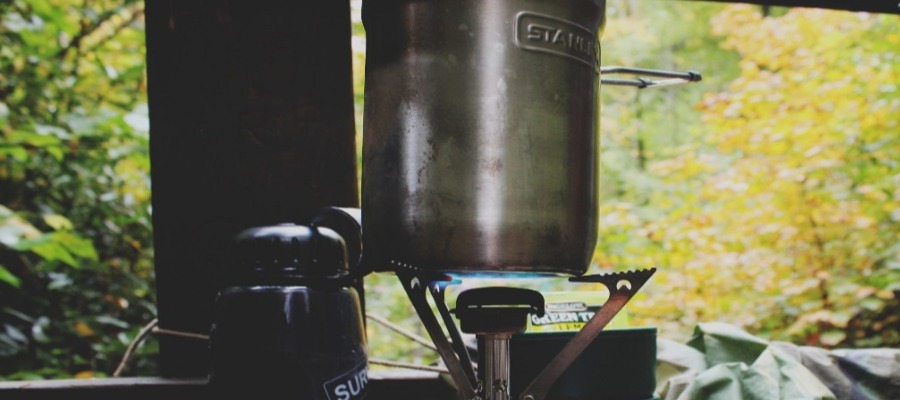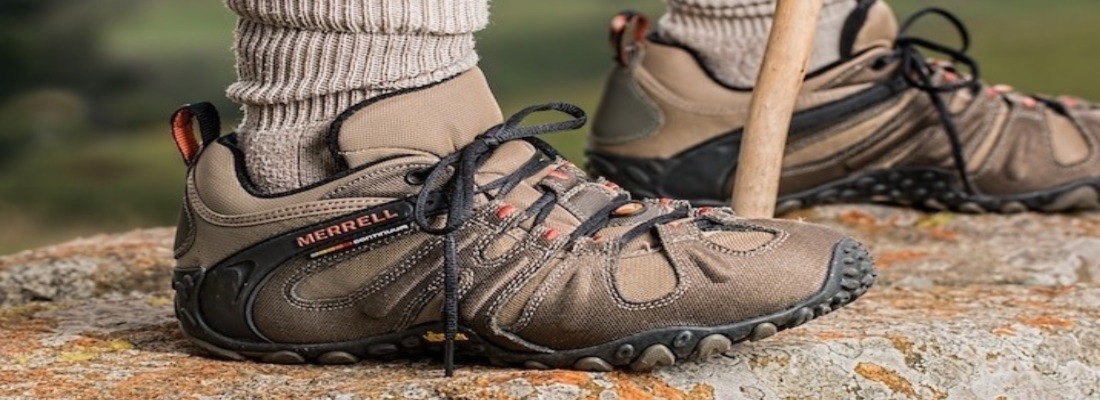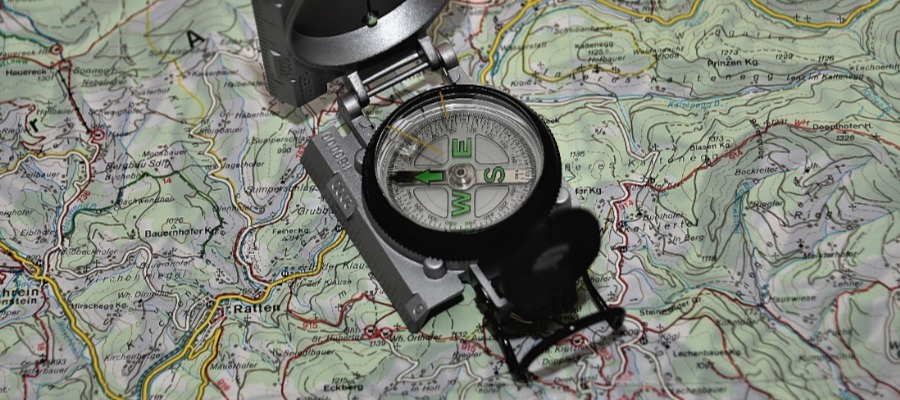Things go wrong. It is an unfortunate part of hiking and life in general. However, it always pays to be prepared, and with some proactive measures in place, you can hopefully avoid facing many problems. When I go hiking, I carry both an emergency kit, a first aid kit and a few other things, in a small rucksack that I take with me everywhere I go. I do this because I have seen the consequences of being unprepared in the countryside.
Two years ago, I came across a couple or who out hiking, he had fallen, and had a badly broken leg. They had no hiking equipment, no emergency equipment and worse still, had no real idea of where they were, or how to get help. When I found them, they were cold and worried, another couple of hours and things could have been very different. In order to help you stay safe while hiking, here are the top ten problems hikers face and how to avoid them.
Getting Lost
It can happen at any time to anyone. I think of myself as an experienced hiker, having spent a large part of my life in the countryside across the UK. However, there are lots of times over the last few years that I have been lost. You walk up to a junction of two trails, turn left, convinced it’s the right path and end up on the wrong side of a river struggling to get across. It’s very easy to do, in fact, most hikers will probably have a story about how they ended up on the wrong trail or a little bit lost.
However, it is one of the easiest things to avoid. It all comes down to staying alert and good navigation. Using your map to create handrails and backstops will prevent you from going astray. Keeping a close eye on your GPS will also help you quickly rectify a miss-step. Stay alert and always check your navigation, and you should never be too far from the trail.
- Check Out The Latest Garmin Oregon GPS Here
Improper Nutrition
Improper nutrition is a problem new hikers are likely to face. They think that sweets and sugary drinks and the way to stay energised. While they do give you a good boost of energy, it’s short-lived. To avoid burnout of fatigue on the trail, try to eat a range of food types.
Carbohydrates provide slow-release energy, and savoury snacks like peanuts and dried snacks can help replace salts you lose through sweating. There is always a place for sweets on a hike, but make sure you cover all your bases in terms of food and nutrition.
- Check out this blog post on eating correctly on a long hike
Dehydration
Dehydration is a severe problem hikers face and can lead to a medical emergency if you are not careful. Once again, it is relatively easy to avoid but requires a little bit of planning. Do some research before you start hiking to see if you will be able to fill up your water bottles along the trail.
Make sure to take a means of water filtration with you. If there are no suitable filling stations along the trail, make sure you bring enough water. For your average walk, you’ll need half a litre of water for every hour of activity but always factor in a little bit extra.
- Check out this blog post on purifying water while in the countryside
Equipment Problems
Maintaining gear is a chore, and some hikers will neglect it. Unfortunately, this usually leads to critical gear failure, often when you are on trail. Zippers are one of the main culprits here as they can easily get jammed with dirt and then broken.
There is a simple solution though, keep your equipment in good working order. Equipment issues can also come from poorly manufactured gear. If you are a long-distance hiker or spend a lot of time hiking, it’s wise to buy good quality gear that has been tried and tested to perform in a range of conditions. In might be more expensive, but it will be worth it.
- Check out my Best Walking Gaiters Here
Weather and Getting Wet
Getting caught out in wet weather can make a hiker miserable. Learning to check the forecast in the days leading up to a hike can help you avoid facing this problem.
On top of checking the forecast, it’s a great idea to carry a small day-pack containing a few essential items. Personally, I carry a small 30-litre day-pack holding a few things that I would need in an emergency, but also a set of waterproofs. If I get caught out in the rain, I have them with me to stay dry. I don’t think there is anything worse than walking in the rain and being wet and cold.
Pain
Your feet, knees and ankles get put under immense strain while hiking. As such, pain in these areas is a common problem that hikers face. The best way to avoid this is to allow your body time to get strong. Don’t bit off more than you can chew, so to speak.
If you are new to hiking, allow your body to get strong slowly to avoid injury. Furthermore, you can carry a simple first aid kit that includes pain killers. If you find yourself experiencing pain while hiking, it’s nice to take a pain killer to subdue the ache.
Insects and Bugs
Let’s face it, if you want to go hiking, you are going to have to deal with insects. While not all hikers will face this problem, depending on the season and location that you conduct your hiking, most hikers will have to deal with this. A bug head net can help protect your face from pesky insects, and having good insect repellent should stop you from getting bitten. Wearing long sleeve t-shirts and trousers will also help keep the bugs off your skin.
Cold
It is very easy to get cold, particularly if you hike in the mountains. Getting cold is a problem that hikers can avoid by carrying appropriate gear.
Try to pack a warm layer in your backpack that you can pull out if you start to feel cold. If you are planning on camping overnight, make sure you check the average temperature and bring a suitably rated sleeping bag and insulated matt. Getting wet is a quick way to get hypothermia. Bring waterproof layers on every hike to avoid getting caught in the rain shower, and take care crossing rivers if you must do so.
- Check out my Day Hiking check List Here
Altitude Sickness
Altitude sickness is not a problem every hiker will face, but if you are planning a trip to hike a mountain range, it is something that you must be aware of. Altitude sickness is the result of ascending too quickly. At a higher altitude, your body struggles to get enough oxygen into your blood, which can cause headaches, dizziness, vomiting or nausea, swelling of hands and feet and exhaustion.
Altitude sickness should not be taken lightly. If you begin to experience symptoms, you should descend immediately until they pass. Altitude sickness can be fatal if you do not take the correct steps. To avoid altitude sickness, you need to give your body time to acclimatise, taking between 1 and 3 days.
Accidents and Emergencies
Serious accidents can and do happen while hiking. Over the years, I have seen everything from broken legs to heart attacks. What I find most remarkable is the number of people who venture out in the countryside with little or no emergency gear. If you fall over and break your leg while hiking up the UK’s tallest mountain, Ben Nevis, how are you getting home?
To help avoid disastrous outcomes, it’s always a good idea to carry a GPS with an SOS function that can send out a distress signal and an emergency pack to help you stay comfortable while you wait for help.
Check Out What I Carry in My First Aid Kit Here and Emergency Gear Here
Final Thoughts
This article may seem a little bit doom and gloom. However, the reality is with a little bit of knowledge and preparedness, you will never have to deal with these problems, and you will enjoy hiking immensely. Staying safe while hiking is priority number one, so make sure you are prepared.


